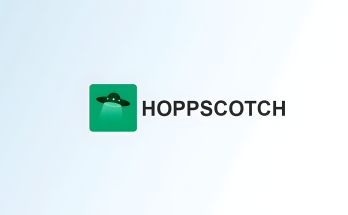JAKARTA, cssmayo.com – In recent years, blockchain technology has gained significant attention for its potential to transform various industries by enhancing transparency and trust. Originally developed as the underlying technology for cryptocurrencies like Bitcoin, blockchain has evolved into a powerful tool that can improve processes across numerous sectors, including finance, supply chain management, healthcare, and more. This article delves into the fundamentals of blockchain technology, its key features, and real-world applications that demonstrate its ability to ensure transparency in everyday life.
Understanding Blockchain Technology

What is Blockchain?
At its core, Blockchain is a decentralized digital ledger that documents transactions across numerous computers, ensuring that the data remains secure, transparent, and unchangeable. This means that once information is added to the blockchain, it cannot be altered or deleted without the consensus of the network participants.
Key Characteristics of Blockchain Technology
- Decentralization: Unlike traditional databases controlled by a central authority, blockchain operates on a peer-to-peer network. This decentralization reduces the risk of fraud and manipulation.
- Transparency: All transactions recorded on the blockchain are visible to all participants in the network. This transparency fosters trust among users, as they can verify transactions independently.
- Immutability: Once a transaction is added to the blockchain, it cannot be changed or erased. This feature ensures the integrity of the data and prevents tampering.
- Security: Blockchain employs cryptographic techniques to secure data, making it resistant to hacking and unauthorized access.
The Importance of Transparency in Everyday Life
Transparency is crucial in various aspects of daily life, particularly in building trust and accountability. Here are some areas where transparency plays a vital role:
- Financial Transactions: Consumers and businesses alike demand transparency in financial dealings to prevent fraud and ensure fair practices.
- Supply Chain Management: In an increasingly globalized world, transparency in supply chains helps consumers understand the origins of products and the ethical practices involved in their production.
- Healthcare: Patients seek transparency in healthcare services to make informed decisions about their treatments and providers.
- Voting Systems: Ensuring transparent voting processes is essential for maintaining the integrity of democratic systems.
Applications of Blockchain Technology Ensuring Transparency
1. Financial Services
Blockchain technology is revolutionizing the financial sector by providing secure and transparent transaction methods.
- Cryptocurrencies: Digital currencies like Bitcoin and Ethereum operate on blockchain technology, allowing for peer-to-peer transactions without the need for intermediaries. This reduces transaction costs and enhances transparency.
- Intelligent Contracts: These self-executing contracts, with the terms of the agreement embedded in code, can automate and enforce contractual obligations. They guarantee that all parties meet their responsibilities, fostering trust among them.
2. Supply Chain Management
Transparency in the supply chain is critical for consumers who want to understand the journey of their products.
- Traceability: Blockchain enables companies to track products from their origin to the end consumer. For example, Walmart uses blockchain to trace the source of food products, ensuring safety and quality.
- Ethical Sourcing: Brands can provide proof of ethical sourcing practices, allowing consumers to make informed choices. Companies like Everledger use blockchain to verify the provenance of diamonds, ensuring they are conflict-free.
3. Healthcare
In the healthcare sector, blockchain technology can enhance transparency and security in patient data management.
- Patient Records: Blockchain can provide a secure and tamper-proof way to store patient records. Patients can control access to their data, ensuring that only authorized parties can view their information.
- Drug Traceability: By tracking pharmaceuticals through the supply chain, blockchain helps to prevent counterfeit drugs from entering the market. This ensures that patients receive safe and authentic medications.
4. Voting Systems
Ensuring the integrity of voting systems is essential for democracy.
- Secure Voting: Blockchain can create a transparent and secure voting process by allowing voters to cast their ballots digitally while ensuring that their votes are counted accurately. Projects like Voatz have implemented blockchain-based voting solutions to enhance electoral transparency.
- Auditability: The immutable nature of blockchain allows for easy auditing of votes, making it possible to verify election results without compromising voter privacy.
Challenges and Limitations of Blockchain Technology
While blockchain technology offers numerous benefits for ensuring transparency, it also faces several challenges:
- Scalability: As transaction volumes rise, blockchain networks may experience congestion, resulting in slower processing times and increased costs.
- Regulatory Uncertainty: The regulatory landscape for blockchain and cryptocurrencies is still evolving. Unclear regulations can hinder widespread adoption and innovation.
- Energy Consumption: Some blockchain networks, particularly those using proof-of-work consensus mechanisms, consume significant amounts of energy, raising environmental concerns.
- User Adoption: For blockchain to be effective, users must understand and trust the technology. Education and awareness are crucial for driving adoption.
The Future of Blockchain Technology
The future of blockchain technology is promising, with ongoing developments aimed at addressing its challenges and expanding its applications:
- Interoperability: Efforts are being made to create interoperable blockchain networks that can communicate with each other, enhancing scalability and functionality.
- Hybrid Solutions: Combining public and private blockchains can offer the best of both worlds, allowing organizations to maintain privacy while benefiting from transparency.
- Increased Regulation: As governments and regulatory bodies develop clearer frameworks for blockchain technology, it may lead to greater trust and adoption among businesses and consumers.
Conclusion: Embracing Blockchain Technology for Transparency
Blockchain technology has the potential to revolutionize how we ensure transparency in everyday life. By providing secure, decentralized, and immutable records, blockchain enhances trust and accountability across various sectors, from finance to healthcare and beyond.
As organizations continue to explore the possibilities of blockchain, its adoption will likely grow, leading to more transparent practices and improved consumer experiences. Embracing this technology can help individuals and businesses navigate the complexities of modern life while fostering a culture of transparency and trust.
Elevate Your Competence: Uncover Our Insights on Techno
Read Our Most Recent Article About Data Mining!




